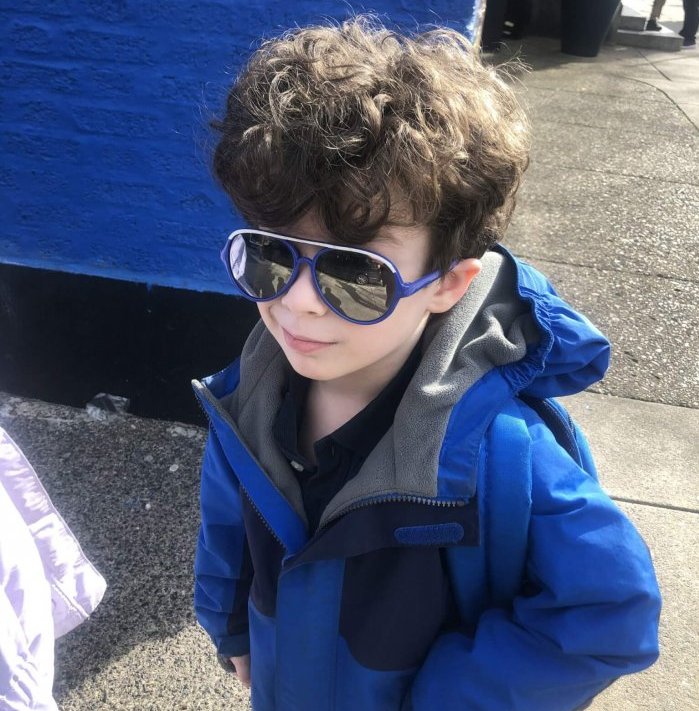
Garinim
Last week the Garinim (PreK and K kiddos) focused in on a character study of Moshe, Bnei Yisrael’s (the Jewish people’s) greatest biblical leader. We looked at snapshots of Moshe’s life and choices to discover both what made him such a good leader, and also what mistakes he made.
After growing up in Pharaoh’s palace, empathizing with the plight of the slaves, killing an Egyptian taskmaster, and running away from it all, Moshe found himself living the good life as a shepherd in Midyan. One day, while chasing after a stray sheep, Moshe noticed something weird. He saw a bush on fire, that burned without being consumed. God spoke to him there and told him to go back to Egypt, to speak to Pharaoh, and to lead Bnei Yisrael out of slavery to freedom. Moshe did not jump at the opportunity to be this heroic leader. He refused, argued, and begged God to find someone else.
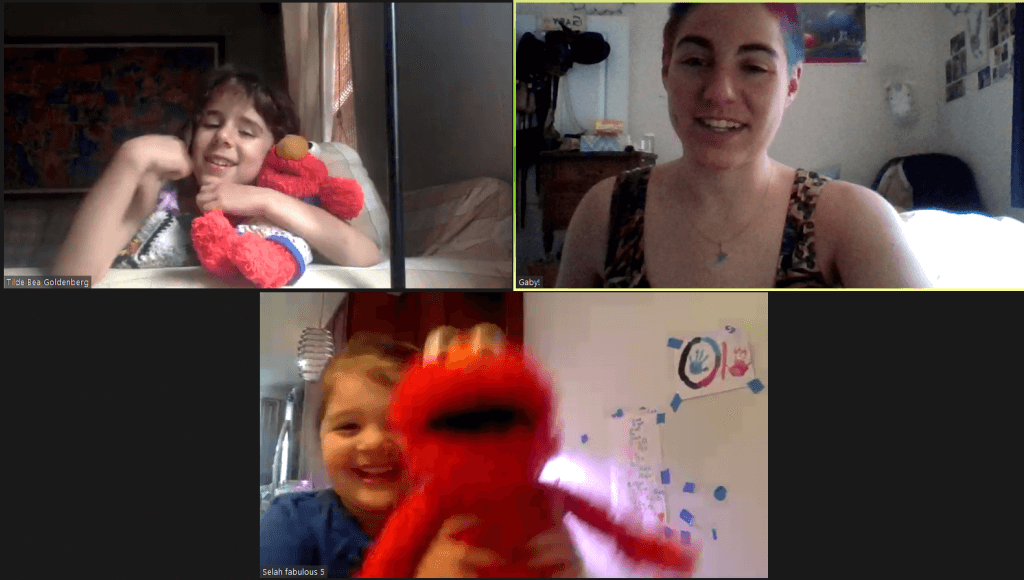
For each of his arguments, God had a reassurance. Moshe was worried that no one would believe he was sent by God; God reminded him that he’ll have his shepherd’s staff to help him perform God’s miracles. Moshe was worried that he didn’t speak very well; God told him that his brother Aharon would be there to speak for him. Moshe was worried he wouldn’t know what to say; God said that God would provide him with the right words.
When have we been faced with big, scary, hard tasks? Who or what do we have to support us in those moments?
- Learning isn’t always easy. My teacher is helping me learn by making it more fun.
- My stuffy that I made named Rosie, and my mom, and my other stuffy. Hugs and smooches from my mom help me feel better. Also while I’m holding my two dolls. They are very special.
- Sometimes my schoolwork is hard. My mom supports and helps me with it.
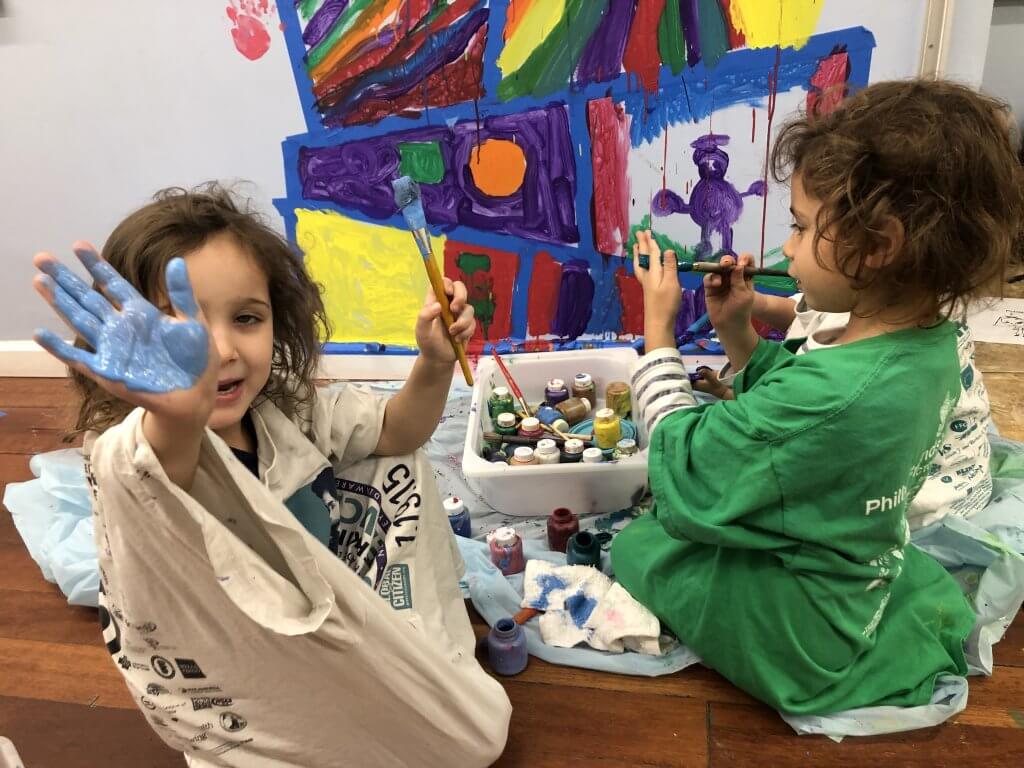
What can we learn about leadership from Moshe here? As leaders, we don’t always have to be enthusiastic to do our jobs; we don’t have to start off confident; we can be humble, scared, and intimidated. And we don’t have to be alone. Remember our families, communities, and favorite comfort objects! They are there to support us through our difficult and scary tasks.
Shorashim
This past week the Shorashim (first graders), also unpacked leadership and the ways we are leaders when it comes to receiving and sharing Torah. The Shorashim first identified the leaders in their lives. Then they reflected on the ways in which they are leaders and the feelings that come along with leadership:
- My parents! They help me and they teach me
- My parents. Because my mom speaks Spanish and can help me with my school work better than my dad. My dad helps me with science. He told me about how the coronavirus infects your cells.
- In my house I have been a leader for blessing things and making things and I also lead a lot of games because I am good at making up games.
- I don’t feel good when people don’t listen to me because it makes me feel like a bad leader and it makes me feel like I am bad at things.
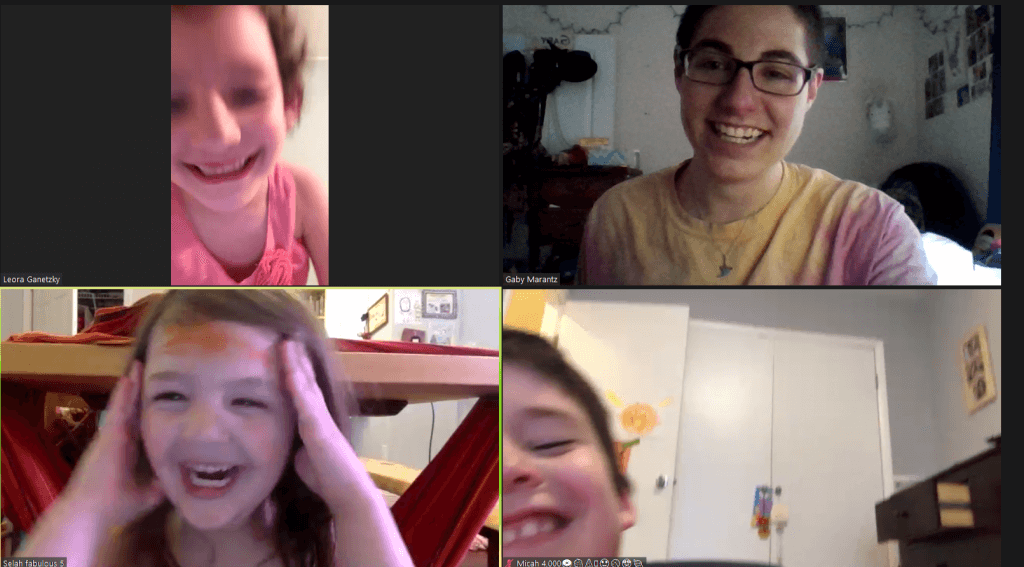
A lot of our ideas about leadership related to teaching Torah, both as educators and as learners. What are the ways we receive the Torah?
- We are sorta receiving Torah by doing Jewish things, but I think we are not receiving the total Torah just in reading it. We also receive Torah by reading a siddur (prayer book).
- When you read the Torah you are receiving the Torah. You don’t need the Torah in your actual hands to receive it. You just need to know the words. The decoration is cool but it doesn’t mean you are receiving the Torah, it just looks pretty for the Torah.
For our project block on Thursday, I prompted each student to find a creative way to teach a piece of Torah to an imaginary new student at Makom Community.
- One kiddo built a Lego tower of Babel.
- One kiddo made dances for the different brachot (blessings) the tribes received as they prepared to enter the land of Israel.
- One kiddo wrote a poem to share her interpretation of Megillat Rut (the book of Ruth).
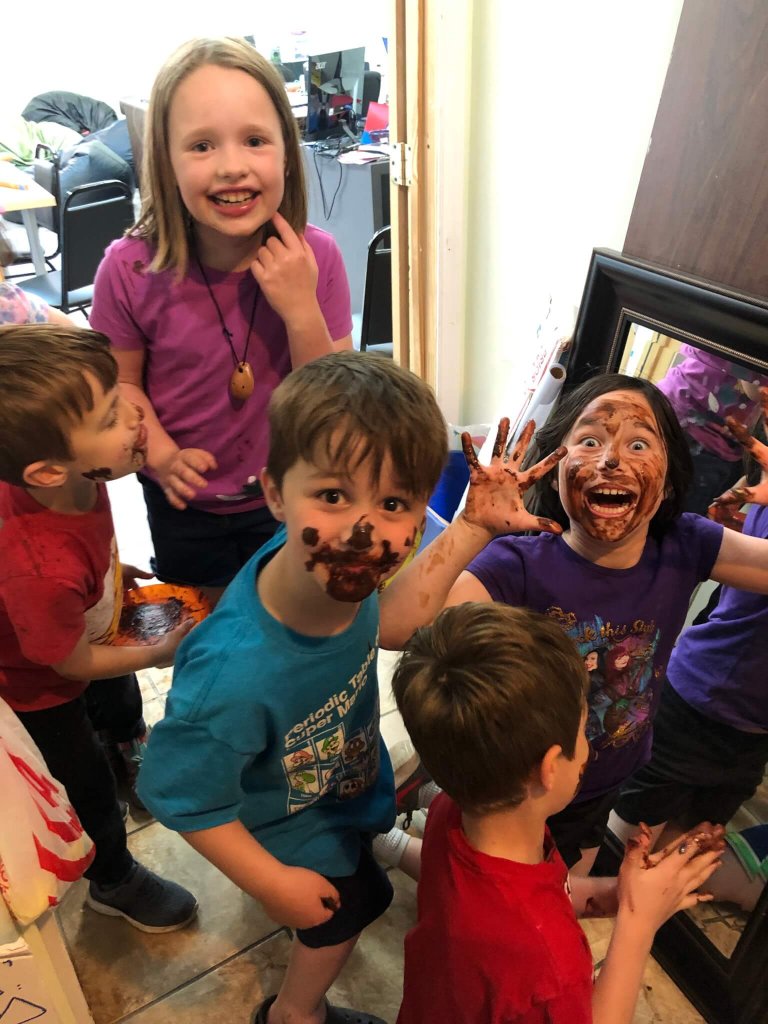
Nitzanim
Chazak, chazak, v’nitchazek (be strong, be strong, let us be strengthened)! In synagogue, upon finishing to read each of the five books of the Torah, the whole congregation chants chazak chazak v’nitchazek together. The Nitzanim (2nd-4th graders) evaluated a list of things we do every day to decide whether or not they helped us become stronger. Some things, like getting a good night of sleep`and going outside clearly aided in our strength (as one kiddo put it, “If you don’t go outside, especially now, you might go a little crazy”). A few things sparked some debate, like whether or not reading books makes you stronger.
We identified a few different kinds of strength, and determined that some things can help us feel strong in some ways, but not in others. My personal favorite was when I asked the Nitzanim if eating Twizzlers makes you strong. One kiddo responded “it doesn’t make you physically strong, but it can make you emotionally stronger.”
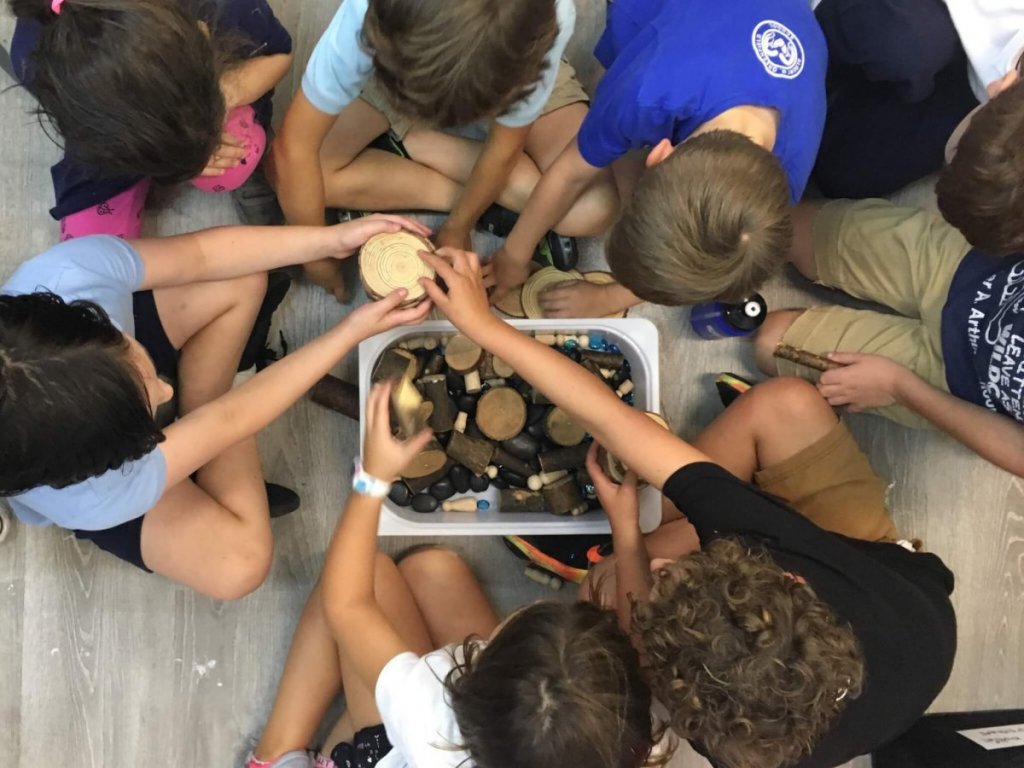
I asked the Nitzanim what the kind of strength we refer to upon finishing a book of Torah looks like:
- Lovely
- Happiness
- Yay!
- Joyous
How might we become stronger after hearing a book of Torah?
- We just learned a lot.
- It fills us with knowledge about our history and our ancestors.
- It makes us emotionally happy and that makes us emotionally stronger.
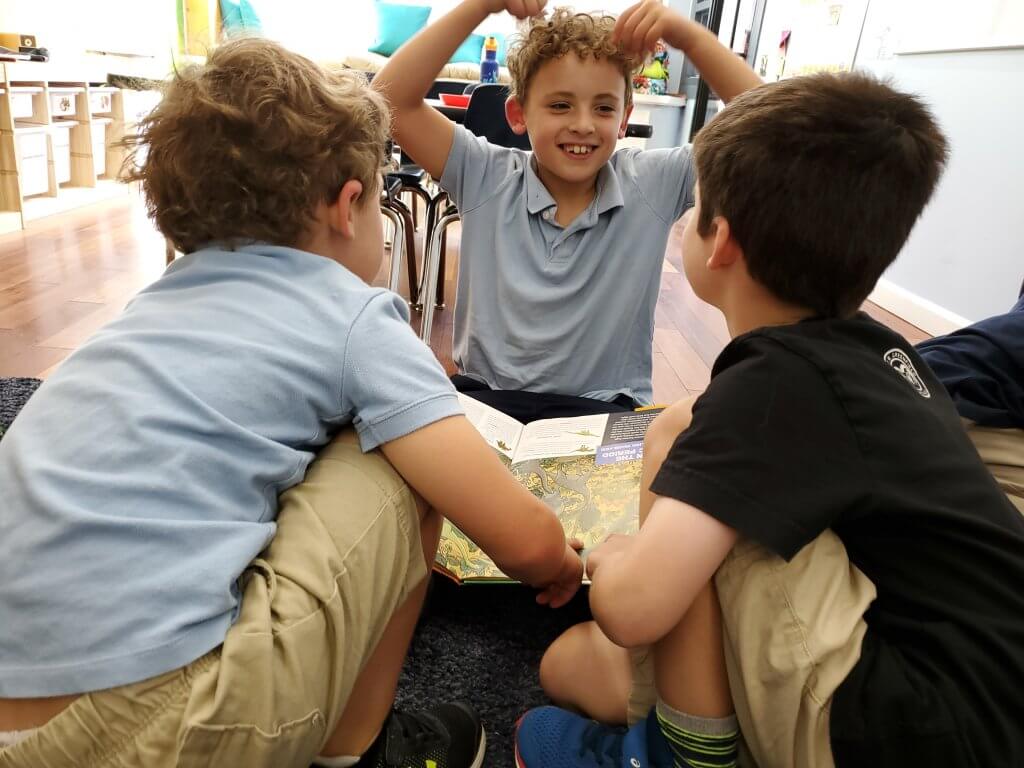
Does listening to and discussing Torah made you personally stronger?
- The Torah is only telling you things, it’s not giving you superpowers.
- Yes, no, and maybe. It makes you stronger because if the Torah is true, you know where you came from. It makes you stronger because you might learn something. It doesn’t make you stronger, because it might not be true, and then you’re just reading stories.
- I don’t know. I think it would if I did it every single day.
I pointed out to them that every time we have class, every time they ask a question about something we’ve learned, every time they find themselves singing Ashrei in the shower, they’re engaging with Torah. We might not notice that we become stronger by listening to Torah overnight. But bit by bit, it adds up, and suddenly we notice our Torah muscles are huge!
